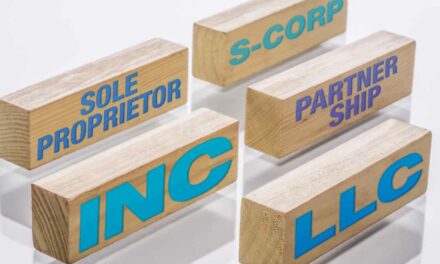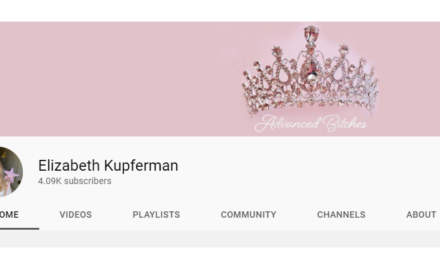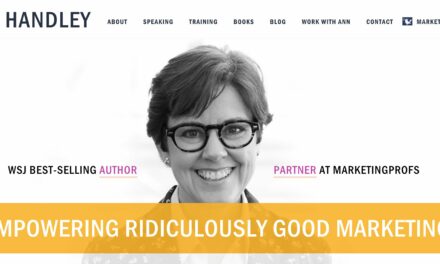Coaching and consulting services rank as the most popular and most profitable revenue stream among expert creators.
Some entrepreneurs add the revenue stream based on what they learn operating the business. Others start consulting and/or coaching from day one. Three entrepreneurs – Robert Rose, Ashley Baker, and Jason Schemmel – have traveled different paths to coaching and consulting. They share how they got into the business, what they do, and how they price it. Plus, the trio, who all have a marketing content tilt, give advice to expert creators in any niche.
Give your audience what they need
Robert Rose has offered consulting services as chief troublemaker at The Content Advisory for years. It came about after working on the startup of the Content Marketing Institute (founded by The Tilt founder Joe Pulizzi).
They listened to the CMI audience. Robert explains, “We had many brands come to us and say, “OK, this content marketing thing seems great, but how do we evolve our marketing operations to handle it?’”
TCA’s consulting practice focuses on solving deep content operational challenges larger organizations face. Adjacent to the consulting services, they offer virtual and on-site training.
Coaching services are a new offering that originated from listening to his audience. “It grew out of our consulting practice. Once we were done with a road-mapping strategy, the practitioners often needed assistance implementing it,” Robert says.
Coaching grew out of the consulting business for @Robert_Rose. After his clients had the strategy, the practitioners needed help implementing it. #CreatorEconomy Share on XThe Content Advisory earns revenue from three streams – consulting with large companies (70 to 75%), coaching and training (20% to 25%), and creating content, such as keynotes, white papers, etc. (about 5%). These services also have a broad price tag range, between $25K and $50K for consulting and about half that for coaching.
But Robert doesn’t end his coaching services with his agency. With his new book, Content Marketing Strategy: Harness the Power of Your Brand’s Voice, the author built a content hub with additional resources, including access to coaching services.
Robert Rose’s advice to become a successful creator consultant
“Market where you’re going, but operate where you are,” he says.
What does that mean? Work in your business now on what will get you to where you want to go.
In Robert’s case, when he started in the content strategy and content marketing industry, he wasn’t known in the field. “I had to earn my way into that space through my content. So, I still took (eagerly) the email copywriting, SEO, website construction, and other gigs to pay the bills,” he says.
“Don’t be shy about leveraging what you have in your pocket as a way to keep your business running as you build toward the dream,” Robert says.
Make the leap and start
Ashley Baker turned full-time freelancer during the pandemic. “I decided to after my dream of being my own boss,” she says.
A few months after launching Coastline Marketing, she added consulting services. “I could see the trend of businesses needing help developing their own internal personnel who weren’t ready to offload to a freelancer or agency and decided to add consulting as a service,” Ashley explains.
She doesn’t promote consulting services on her brand’s website because they don’t want to confuse visitors about their primary service – creating and implementing digital marketing tactics. But consulting services now make up 15% to 20% of her business.
Ashley sees consulting and coaching as a valuable revenue stream for expert creators with all kinds of content tilts. “Studies show that the average person asks about 20 questions per day. Sure, Google has answers to a lot of them, but the one thing Google doesn’t have is your experience and your knowledge,” she says.
Publishing content like blog articles is helpful, but they aren’t comprehensive how-to guides. “That’s where you come in,” Ashley says. “Your experiences and your knowledge of your chosen specialty are valuable. They can’t be replicated because no one is, well, you. Don’t undervalue that. Be the person people seek out instead of the blog articles to answer, comprehensively and in a one-to-one manner, those questions on your specialty. If they’re asking them, why not be the one who profits from answering?”
Ashley Baker’s advice for starting a consulting practice
Ashley’s best advice is to start. If you don’t, you’ll never know what it could be.
“‘Starting’ doesn’t have to mean quitting your 9 to 5 and going all in. It looks different for everyone. Maybe you start by taking a single client and working a few hours after your full-time job, or maybe you reach out to a lawyer to get a contract and LLC in place,” she says.
You don't have to quit your full-time job to start offering consulting and coaching services, says Ashley Baker of @CoastlineMktg. #ContentEntrepreneur Share on XA lawyer is the place any entrepreneur should begin. “The amount of time and money I would’ve saved myself in the beginning by having a solid contract is significant,” Ashley says. “Make sure to include terms of what they can expect from you, what is outside of scope, terms for payment, hours of work, and how you plan to bill any client asks outside of your initial contract.
Every entrepreneur should also dedicate time to grow the business. “It’s so easy to get lost in the day-to-day tasks, but make sure you’re carving out time to do that and asking for (customer) reviews along the way,” Ashley says.
Reinventing consulting based on lessons learned
Jason Schemmel has been down the consulting and coaching revenue path a few times. This fall, he’s launching a new consulting and coaching endeavor, Get Social Done, based on what he learned in his prior attempts.
In his early consulting days, Jason just asked people locally and online if they wanted assistance with their content marketing and social media advertising. He addressed a potential client’s pain point or situation on the spot. But that wasn’t enough to sustain the consulting practice.
Jason realized he needed to document his journey and provide social proof and validation of his expertise. He needed to show prospective clients rather than just tell them why they should hire them.
Social proof and validation of your expertise are essential for consultants and coaches to acquire clients, says @JasonSchemmel. #ContentBusiness Share on XHe also joined a group of entrepreneurs – some already successful in their endeavors and others starting out. “Having this group to lean on for expertise, share my expertise, validate my thoughts and ideas, and just be there to cheer me on when that impostor syndrome inevitably comes calling has been incredibly beneficial,” Jason explains.
He also is creating a content path that will attract his target audience. It includes a webinar on the psychology behind social media content as well as free documents and resources to drive people into his community. “I can provide value while building trust and authority with them,” Jason explains.
His goal for the first year is to sustain eight consulting clients every month. Jason offers a one-time service and three monthly subscription models ranging from $250 to $5K.
“The last time I tried it, I wanted to help everyone who gave me a chance and ended up over-exerting myself, stretching myself beyond my limits, burning myself out, and subsequently burning the bridges of the clients whom I didn’t help properly,” Jason says. “Experiencing that has helped me make sure that I have reasonable and attainable goals this time that not only help me but help my relationships with my community and future clients.”
Jason Schemmel’s advice for new consultants and coaches
“When you boil it down, trust and authority in your niche are what’s going to separate you from everyone else,” Jason says. “Social proof, testimonials, sharing what you know, etc., are all valuable ways to prove you know what you are talking about; you can apply it, and you get results.”
For those starting a consulting or coaching practice, adopt a “Give more, make more” mentality. You have to give more value to make more money, Jason says.
Create a clear value proposition that you can easily communicate,” he says. “You don’t have to come up with something new and fancy. You just have to be able to provide value that your target audience didn’t know they were missing out on or solve a pain point you know they are experiencing.”
About the author
Ann regularly combines words and strategy for B2B, B2C, and nonprofits, continuing to live up to her high school nickname, Editor Ann. An IABC Communicator of the Year and founder of G Force Communication, Ann coaches and trains professionals in all things content. Connect with her on LinkedIn and Twitter.










